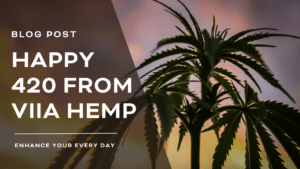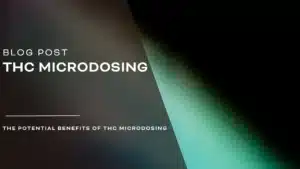
Table of Contents
So you’ve discovered CBG, one of the more recently appreciated cannabinoids found in the hemp plant. And you have questions. What is CBG cannabinoid and how is it different from CBD or THC? Does CBG get you high? How does CBG work? Can you buy a CBG bud?
We have all the CBG info you’re looking for right here.
What Is CBG?
CBG stands for Cannabigerol, one of many naturally occurring and potentially-beneficial plant substances found in cannabis plants. CBG is one of over 100 known cannabinoids found in the plant. More commonly known cannabinoids include Cannabidiol (CBD) and Tetrahydrocannabinol (THC).
How Much Does Science Know About CBG?
CBG was discovered in 1964, but until recently, it hasn’t found itself at the center of many studies. Scientists studied THC and later CBD instead. At this time, CBG research is still in the pre-clinical stages, so “more research is needed”.
Pre-clinical studies are an essential piece of the scientific process. But they are less rigorous than clinical trials, so their findings cannot be confirmed — yet. Pre-clinical studies also often include significant animal studies, which do not always translate to human effects.
With that said, these early pre-clinical studies and anecdotal evidence (personal accounts) show that CBG may have some therapeutic benefits. CBG is a fascinating cannabinoid, as you’ll soon find out.
What Are CBG Properties?
Here’s where things get interesting. CBG’s acidic form CBGA turns into other cannabinoids as the plant ages. CBGA slowly degrades into cannabidiolic acid (CBDA) and tetrahydrocannabinolic acid (THCA). These acids become CBD and THC. Any CBGA left after CBD and THC are at their maximum levels becomes CBG.
For this reason, CBG plant extracts are rare and precious. Since CBGA converts to other forms, it only remains in larger quantities in younger cannabis plants. The CBG high point appears during the 8-week flowering cycle while the plant is still growing.
Because CBG becomes the mega-cannabinoids THC and CBD, some have called it the “Mother of Cannabinoids”.
CBG May Be Inactive in Its Natural State
Many in the scientific community consider CBG “inactive” because it’s found in such small quantities in cannabis that it may do little or nothing. However, similar to CBD and THC, laboratories can extract and isolate CBG, making CBG concentrate. And as with many essential oils and other compounds, concentrating a substance has a more significant effect than using something in its minimally-available state. Growers can also cross-breed plants to increase the naturally-occurring CBG. And yes, growers are currently doing just that.
But does CBG get you high? We’ll get to that.
Concentrate Shows Some Promise
You indeed can find a high CBG bud if you prefer to smoke it. However, currently, researchers are interested in the potential therapeutic effects of CBG concentrates. They’re researching how it may impact:
- Pain
- Heat regulation
- Mood
- Infections
- Cancer
- Nausea
- Neurologic disorders
As stated, more research is needed. At this time, the consensus is that there is no scientific proof that CBG can cure or treat any illness.
What Are CBG Uses?
Early pre-clinical studies suggest that CBG may be therapeutically useful for those with neurological disorders, such as Huntington’s Disease, Parkinson’s Disease, and multiple sclerosis, as well as irritable bowel disease (IBD/IBS). Many neurological disorders and IBD result from the body’s immune system attacking otherwise healthy cells. This research shows that CBG may have some neuroprotective properties in animals.
We don’t yet know if these same effects will transfer to humans. Those with these disorders should speak with their doctors before complementing their medical treatments with CBG usage.
Does CBG Get You High?
Now, here’s what you really want to know. Does CBG get you high?
As it turns out, No.
CBG is a non-psychoactive cannabinoid. This means that CBG doesn’t alter your mental state. You cannot achieve a CBG high even at large doses. But what can you get high off?
THC.
THC is the most common psychoactive cannabinoid. It is, however, not the only psychoactive cannabinoid found in cannabis. Researchers also believe CBN is psychoactive. Although the amount found in cannabis is so minuscule, you’re unlikely to feel its effects.
If you believe you may have experienced a CBG high, the most likely explanation is that the CBG bud was also high in THC. A CBG bud can have 20% or more THC.
So, yeah, a CBG high is not a thing. A CBG bud doesn’t do that if there’s no THC. But a CBG high could certainly be a case of mistaken identity.
How Do People Use CBG Products?
People use CBG, which may come with THC, to:
- Feel euphoric
- Increase motivation
- Increase energy levels
- Increase appetite
- Support a healthy sleep cycle
- Reduce pain sensations
- Manage cholesterol levels
- Manage neurologic disorders
- Reduce eye pressure caused by glaucoma
- Other health benefits
Such use in humans is not currently supported by science. But good science takes time. So, based on animal studies and the positive experiences of others, many are choosing to see for themselves.
Similar to other cannabinoids, you can find CBG in the form of:
- CBG Oil / Tincture – Note: CBG oil is not pure CBG. Always check the label to know how much actual CBG is in it.
- Gummies
- Capsules / Soft gels
- CBG bud, which should not give you a CBG high unless it has THC in it.
Does CBG Have Any Side Effects?
First, we’ve established the answer to: does CBG get you high? There’s no such thing as a CBG high. But what about other side effects?
At this time, there isn’t enough data to definitively say no side effects or at what dose people might have side effects. Early indications are that some may experience:
- Dry mouth
- Increased heart rate
- Decrease in blood pressure
We can say there are “no known side effects”. But that’s not the same thing as “no side effects”.
What Is the FDA’s Stance on CBG?
Both CBG and CBD are considered a dietary supplement by the FDA. As such, it’s not regulated by the FDA as a medication would be. The FDA does, however, control how supplements brand and label products. The FDA can take action against brands that make health claims or do not accurately represent what’s in the product.
Is CBG Legal?
That will depend on where you have it since country and even state laws can vary. We’re not here to give you legal advice. But we can share that the 2018 US Farm Bill allowed for the growing and selling of Cannabis Sativa L. with less than 0.3% THC. Cannabis that has this low amount of THC is known as hemp.
This opened the gates for CBD and CBG production and sales.
Federally, if CBG comes from hemp, then it should technically be legal federally in the United States. If that CBG comes with a healthy dose of THC (in other words, from a marijuana cannabis plant), then no, it’s not legal federally.
However, if you’re in the US and recreational or medical marijuana is legal in your state, then marijuana-derived CBG may be legal where you are.
What about pure CBG? Generally speaking, if you can’t get CBG high, the federal government is okay with it. Does CBG get you high? No. So you’re good to go legally.
How Does CBG Work?
To answer how CBG works, we must first look at how the human body works, starting with the ECS.
The Endocannabinoid System (ECS)
The endocannabinoid system is a network of receptors found within mammals (including humans), not unlike the immune system or digestive system. And similar to those other vital systems, the endocannabinoid system is critical to how we function. It regulates many bodily functions, including:
- Memory
- Mood
- Temperature control
- Pain intensity
- Hunger
- Other immune responses
The goal of this system is to maintain balance in the body we call homeostasis. So, for example, if you get angry because someone hits your car in a parking lot, that is one extreme on the emotional scale. Anger may be called for in this situation. But the body doesn’t like to stay in extreme states. So when you feel angry, your ECS kicks in to return you to your more balanced state slowly.
Something similar happens with body temperature, pain, etc. Sometimes these need to increase, but the body wants to return to a more balanced state.
ECS Receptors
The endocannabinoid system consists of receptors found throughout the body, called cannabinoid receptors. They’re ubiquitous in the digestive system, neurological system (brain, nerves, etc.), and immune system.
The body uses chemical messages to communicate and regulate body functions. These receptors can receive chemical messages. The chemicals involved are known as hormones or neurotransmitters. In the ECS, the neurotransmitters involved are called endocannabinoids.
Endocannabinoids are natural chemical messengers that attach to the ECS receptors. In general, your endocannabinoids bind to receptors in places experiencing an imbalance to return that area to homeostasis. You have two main kinds of ECS receptors: CB1 and CB2.
Cannabinoids like CBD, CBG, and THC are plant-based versions of the naturally-occurring human endocannabinoids. When you use plant cannabinoids, they interact with your ECS system in various ways.
Some get you high, negatively impact memory, and give you the munchies (THC). Others appear to work more like your own endocannabinoids and promote balance (CBD and CBG).
CB1 vs. CB2 Receptors
CB1 receptors are found mostly in the central nervous system (brain and spinal cord). CB2 receptors exist throughout the rest of the body. THC reacts primarily with CB1 receptors in the brain. CBD reacts mainly with CB2 receptors. But CBG interacts with both CB1 and CB2 receptors. This may explain some of the effects researchers are discovering (but need to continue to study).
Researchers have also noted the presence of CBG may increase the body’s production of its own endocannabinoids. This may supplement the effects observed in studies. But does CBG get you high? No. That doesn’t appear to be one of the effects.
However, studies show CBG may also interact with other receptors like the serotonin 5-HT1A receptor.
So does CBG get you high? No, it doesn’t. But it may have other desirable effects on the mind that need more research.
How Is CBG Made?
Laboratories must extract CBG while the plant is still young, since the CBG will convert to CBD, THC, or CBG by the time it grows to maturity. Again, this high CBG period is generally at 8 weeks during the flowering cycle.
CBG Extraction Process
Laboratories typically use one of these extraction methods:
- CO2 Extraction – Using special devices, the CBG bud is frozen using CO2 (dry ice) under high pressure. This causes the plant to release cannabinoids, terpenes, and other plant substances. The CO2 is liquefied and then evaporated in a closed-loop system, leaving the plant substances behind.
- Oil Extraction – The bud is soaked in a carrier oil like coconut or olive. You then use the oil as a tincture.
- Ethanol extraction – The CBG bud is soaked in ethanol (alcohol). This releases the plant substances into the liquid. The liquid then evaporates completely, leaving the CBG behind.
After the extraction process, the plant substances can undergo additional refining to isolate CBG or be left in this full-spectrum form. Full-spectrum contains CBD and other potentially-beneficial plant substances.
But it’s important to note that if extracted from a strain of cannabis high in THC, it will also have all that THC in it. So, if you want “NO THC” CBG products, be sure to read the label and look for manufacturers who use third-party testing to confirm that.
Does CBG get you high? No. It does not. But a CBG product that did not have the THC removed could.
How Prevalent is CBG in Cannabis?
CBG only makes up about 1% of the cannabis plant, making it much less concentrated than CBD (20-25%) or THC (25-30%). On top of that, older plants have even less. If you’re interested in CBG, you’ll want to choose a CBG bud from younger plants.
Cannabis Growers May Increase CBG
While the cannabis plant doesn’t currently consist of very high percentages of CBG, as its popularity increases, growers continue to select and cross-breed cannabis plants with hemp flower that is already naturally higher in CBG to increase how much CBG is found in certain hemp strains.
Which Strains Are CBG High?
Currently, several cannabis strains have significantly more CBG than the typical cannabis plant.
- White CBG – 13.6% CBG
- Super Glue CBG or Tacky Glue – 16-22% CBG
- Jack Frost CBG – 13.1% CBG
- Lemon Diesel CBG 15.4% CBG
- Source G CBG – 13.5% CBG
It’s important to note CBG high products don’t necessarily have low THC. Those who believe they may have experienced a CBG high, may be asking does CBG get you high after consuming a CBG bud or product that’s also high in THC.
So does CBG flower get you high? Answer: Only if the CBG bud also has high THC.







